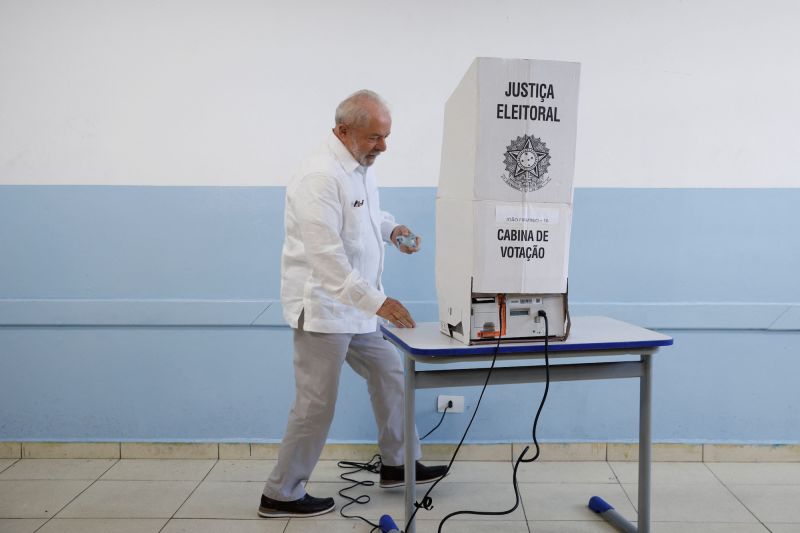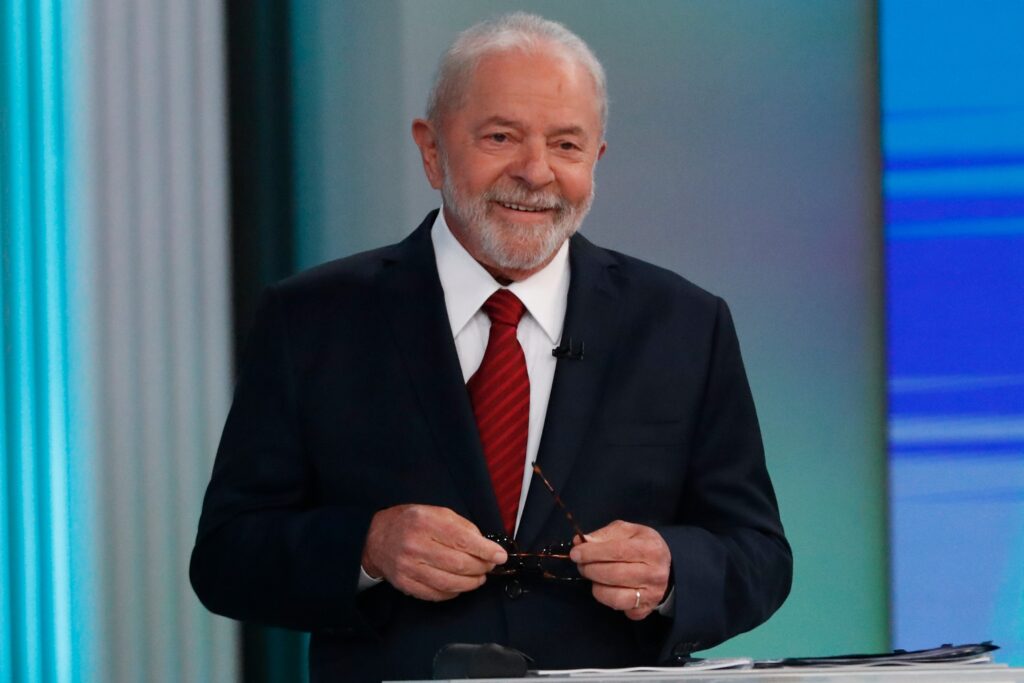 So Paulo
So Paulo
CNN
—
Luiz Inácio Lula da Silva has been elected Brazil’s next president in a tight second race on Sunday.
The 76-year-old politician’s victory represents the return of the left to power in Brazil and marks an abrupt turnaround for Latin America’s largest country after four years of Bolsonaro’s far-right government.
The vote also concludes a triumphant personal comeback for Lula da Silva, after a series of corruption charges led to his 580-day jail term.The verdicts were later overturned by the Supreme Court, paving the way for re-election.
Lula da Silva, who is expected to take office on January 1, will take over the reins of a country plagued by gross inequality and still struggling to recover from the Covid-19 pandemic.About 9.6 million people fell below the poverty line between 2019 and 2021, and literacy and school attendance rates have fallen.He will also face a deeply torn country and pressing environmental problems, including rampant deforestation in the Amazon.
This will be his third term, having ruled Brazil for two consecutive terms between 2003 and 2010.
The former leader’s victory on Sunday was the latest in a political wave across Latin America, with victories by leftist politicians in Argentina, Colombia and Chile.
But Lula da Silva – a former union leader from a working-class background – has tried to reassure moderates throughout his campaign.
He has built a broad alliance with several politicians from the center and center right, including historical opponents of the PSDB, the Brazilian Social Democratic Party.
Among these politicians is his vice president, former governor of São Paulo, Geraldo Alckmin, who has been cited by the Lula camp as a guarantee of moderation in his government.
During the campaign run, Lula da Silva was reluctant to show his cards when it came to devising an economic strategy – a trend that drew sharp criticism from his competitors.‘Who is the other candidate’s Minister of Economic Affairs? There isn’t one, he doesn’t say.
What will be his political and economic route? More state? Less state? We don’t know…” Bolsonaro said during a live broadcast on YouTube on Oct.22.
Lula da Silva has said he would urge Congress to pass a tax reform that would exempt low earners from paying income taxes.And his campaign got a boost from centrist former presidential candidate Simone Tebet, who took third in the first round earlier this month and gave Lula da Silva her backing in the second round.Tebet, known for her ties to Brazil’s agricultural industry, said at a news conference on Oct.7 that Lula da Silva and his economic team “had received all the suggestions from our program and incorporated them into his government’s program.”
He has also gained the support of several renowned economists highly regarded by investors, including Arminio Fraga, a former president of Brazil’s Central Bank.
Lula da Silva’s biggest challenge may well be to unite a politically fractured country after winning by an extremely narrow margin.With 98.81% of the vote counted, Lula da Silva won 50.83% of the vote, according to the Brazilian Electoral Authority.Incumbent Jair Bolsonaro received 49.17%.
Lula da Silva will have to continue the dialogue and restore relations, said Carlos Melo, a political scientist at Insper, a university in São Paulo.
“The president can be an important tool for this, as long as he’s not just concerned with addressing his voter base,” he said.
With millions of votes cast for his rival Bolsonaro – who was backed by former US President Donald Trump – Lula da Silva will have to form “pragmatic alliances” with parts of the center and right who bought into his predecessor’s politics, adds Thiago Amparo up., professor of law and human rights at the FGV business school in São Paulo.
At the same time, he will have to perform to live up to supporters’ expectations, Amparo added.“Many voters went to the vote expecting not just to get rid of Bolsonaro, but with memories of better economic times during Lula’s previous administrations.”
Many will look forward to possible changes to the Labor Reform Act 2017, which subjected more rights and benefits to workers to negotiations with employers, and made union contributions optional.Lula da Silva had previously said he would repeal the law, but recently changed the verb to “review” after criticism from the private sector.
He may find that carrying out his agenda is an uphill battle, Amparo warns, especially with a hostile Congress.Seats that used to be from the traditional right are now occupied by the far right, who are not open to negotiation and not easy to get along with, Amparo underlines.
In the last election, Bolsonaro’s Liberal Party increased its representatives in the lower house from 76 to 99, while in the Senate it doubled from seven members to 14.Lula da Silva’s Workers’ Party also increased its number of deputies from 56 to 68 and senators.from seven to eight, but in general conservative-leaning politicians will dominate the next legislature.
That friction requires some compromises, emphasizes Camila Rocha, a political scientist at the think tank Cebrap.
“[Bolsonaro’s] The Liberal Party will have the largest number of representatives and key allies and will really oppose the government, [Lula da Silva’s] Workers’ party will have to forge coalition with [traditional rightwing party] União Brasil to rule, which means negotiating ministries and key positions,” Rocha told CNN.
Environmentalists, meanwhile, will be keeping a close eye on Lula da Silva’s government as it takes over the governance of not only the Brazilian nation but also the planet’s largest forest reserves.
With destruction of the vast Amazon rainforest reaching record levels under Bolsonaro’s presidency, Lula da Silva has repeatedly said during his campaign that he would try to curb deforestation.He has argued that protecting the forest could yield some gains, citing the beauty and pharmaceutical industries as potential beneficiaries of biodiversity.
In an interview with the foreign press in August, Lula da Silva called for “a new global governance” to tackle climate change and emphasized that Brazil should play a central role in that governance, given its natural resources.
According to the head of Lula da Silva’s government plan, Aloizio Mercadante, another tactic will be to create a group that includes Brazil, Indonesia and Congo ahead of the UN-led Conference of Parties in November 2022.group wants to pressure wealthier countries to finance forest protection and develop strategies for the global carbon market.
Several experts told CNN they believed his stance on the environment and the climate issue could mean a fresh start in Brazil’s international relations.
For Amparo, environmental protection could indeed be a springboard for Brazil’s global leadership, a major shift after Bolsonaro warned the world not to intervene in the destruction of the Amazon.
“Lula would try, almost like a rebrand, to reposition Brazil in the international arena as a force to be reckoned with,” he said.
“We can expect a government that goes back to talking to the world, especially with a new stance on environmental issues,” said Melo, the Insper researcher..
